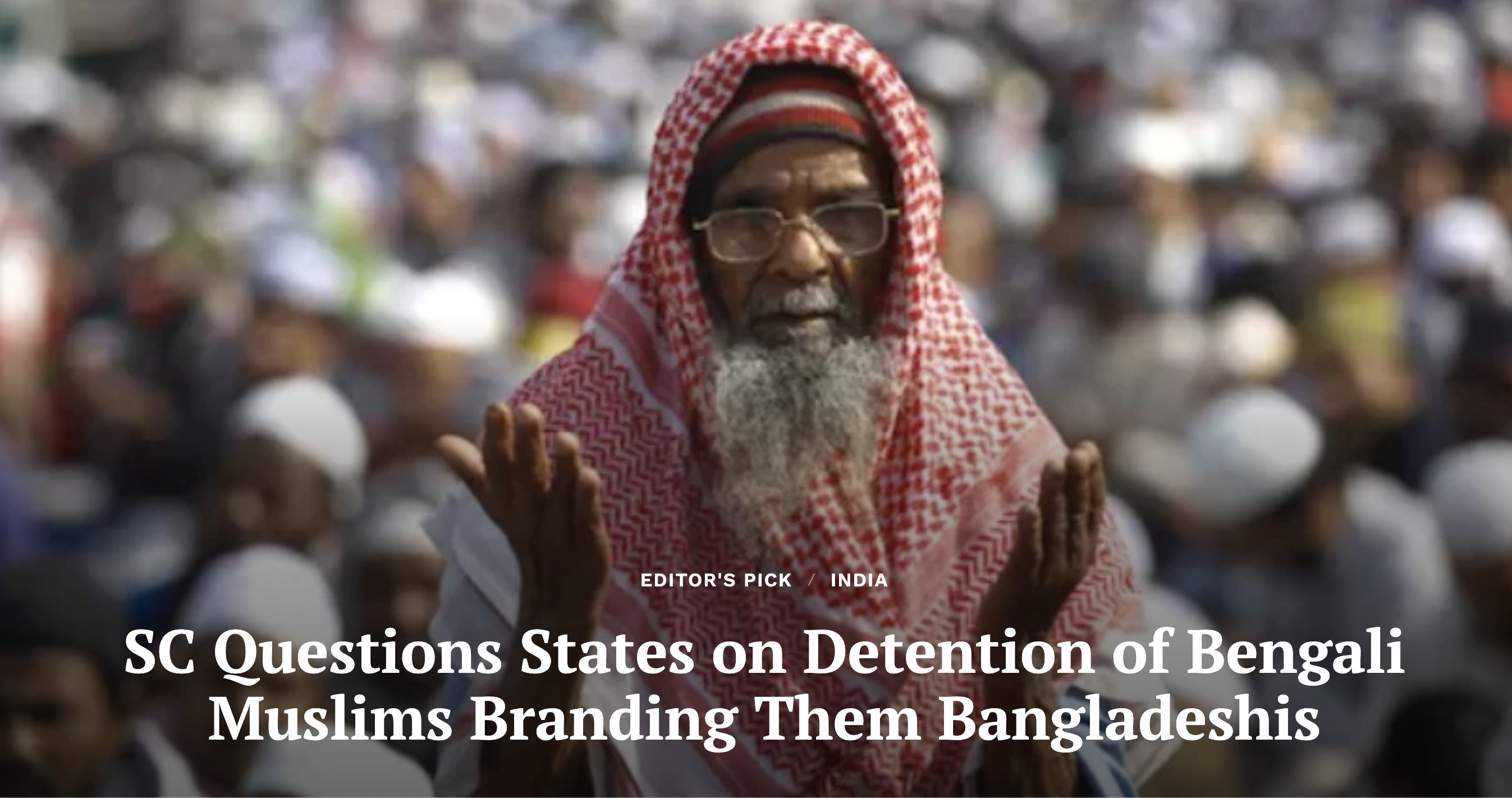
By Team Clarion
NEW DELHI — The Supreme Court has posed serious questions to several state governments after reports emerged that Bengali Muslims working as migrant labourers were being wrongly arrested and deported on suspicion of being Bangladeshi infiltrators.
A Public Interest Litigation (PIL) filed by the West Bengal Workers Welfare Board stated that Bengali-speaking labourers from West Bengal were being harassed across states, following a circular issued by the Union Home Ministry. The petition alleged that those arrested were Indian citizens but were still detained or deported in the name of illegal immigration.
Senior advocate Prashant Bhushan, representing the petitioners, told the bench that such actions were destroying the livelihoods of innocent people. “The men being picked up are not infiltrators. They are citizens of India. Their only fault is that they are poor Bengali Muslims working far away from their home,” he argued.
The case was heard by a bench of Justice Suryakant and Justice Joymalya Bagchi. The judges asked pointed questions to the states of Odisha, Rajasthan, Maharashtra, Delhi, Bihar, Uttar Pradesh, Chhattisgarh, Haryana, and West Bengal, as well as the Centre.
The court demanded an explanation of how the states were implementing the Home Ministry’s circular and why Indian citizens were being pushed out in the name of national security.
Justice Suryakant observed, “If these people are proven to be Indian citizens, how can the state justify detaining them or sending them away? What safeguards are in place to protect the rights of these workers?”
The arrests and deportations have triggered fear among Bengali Muslims, particularly in states ruled by the Bharatiya Janata Party (BJP). Opposition leaders have accused the ruling party of exploiting the issue of “Bangladeshi infiltration” to target Muslims.
An activist from West Bengal, Abdul Rashid, told Clarion India: “Our brothers are being humiliated and thrown out just because they speak Bengali and are Muslims. This is political harassment, not law enforcement. They are made to feel like outsiders in their own country.”
This story was originally published in clarionindia.net. Read the full story here.

